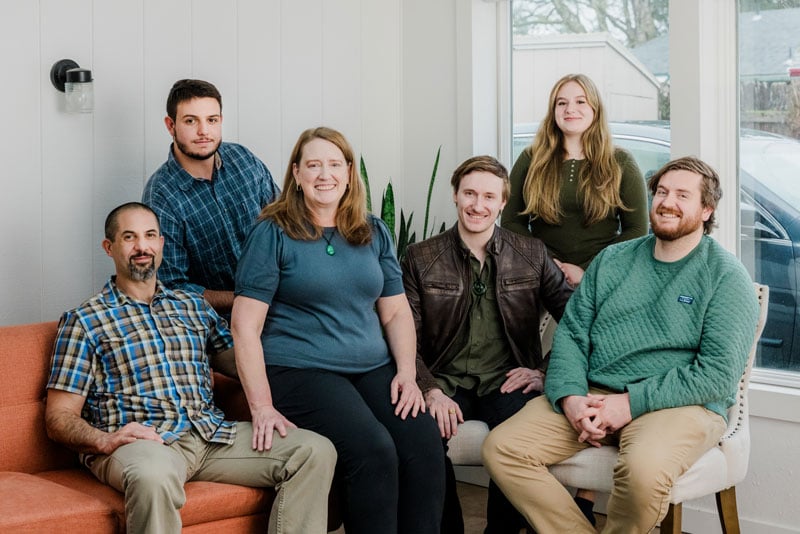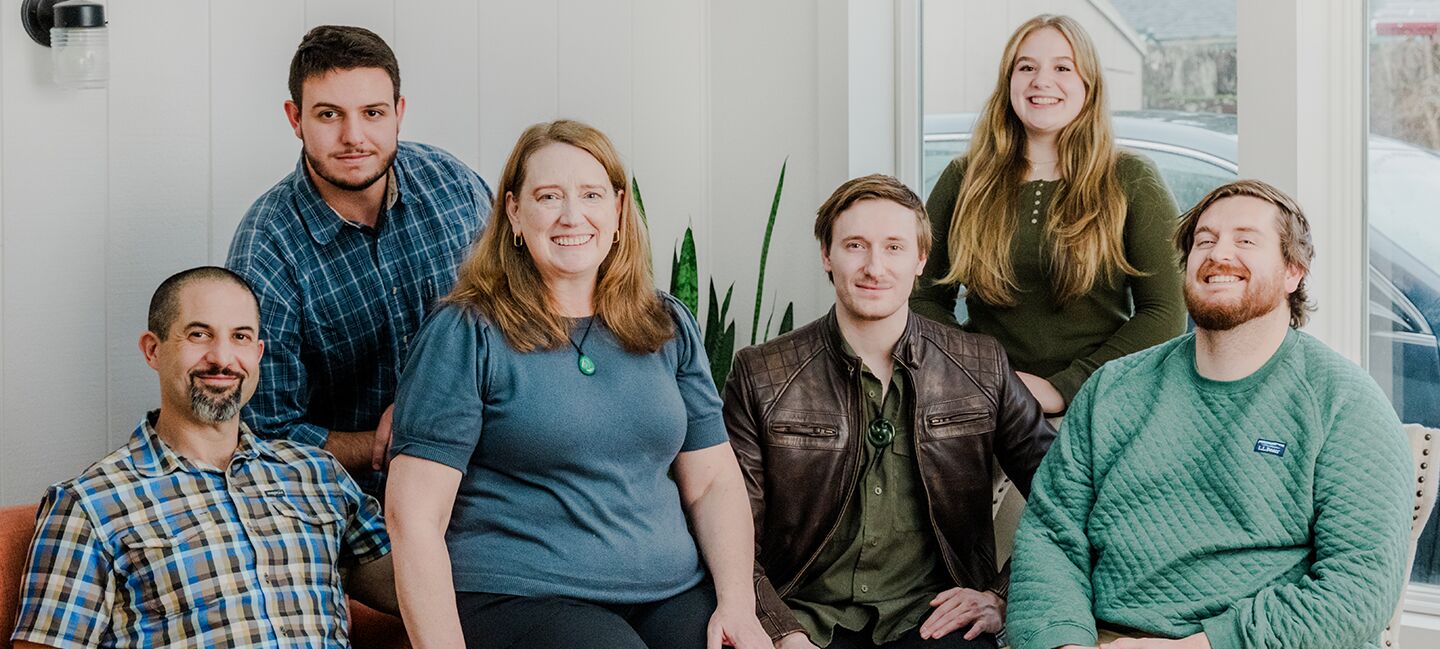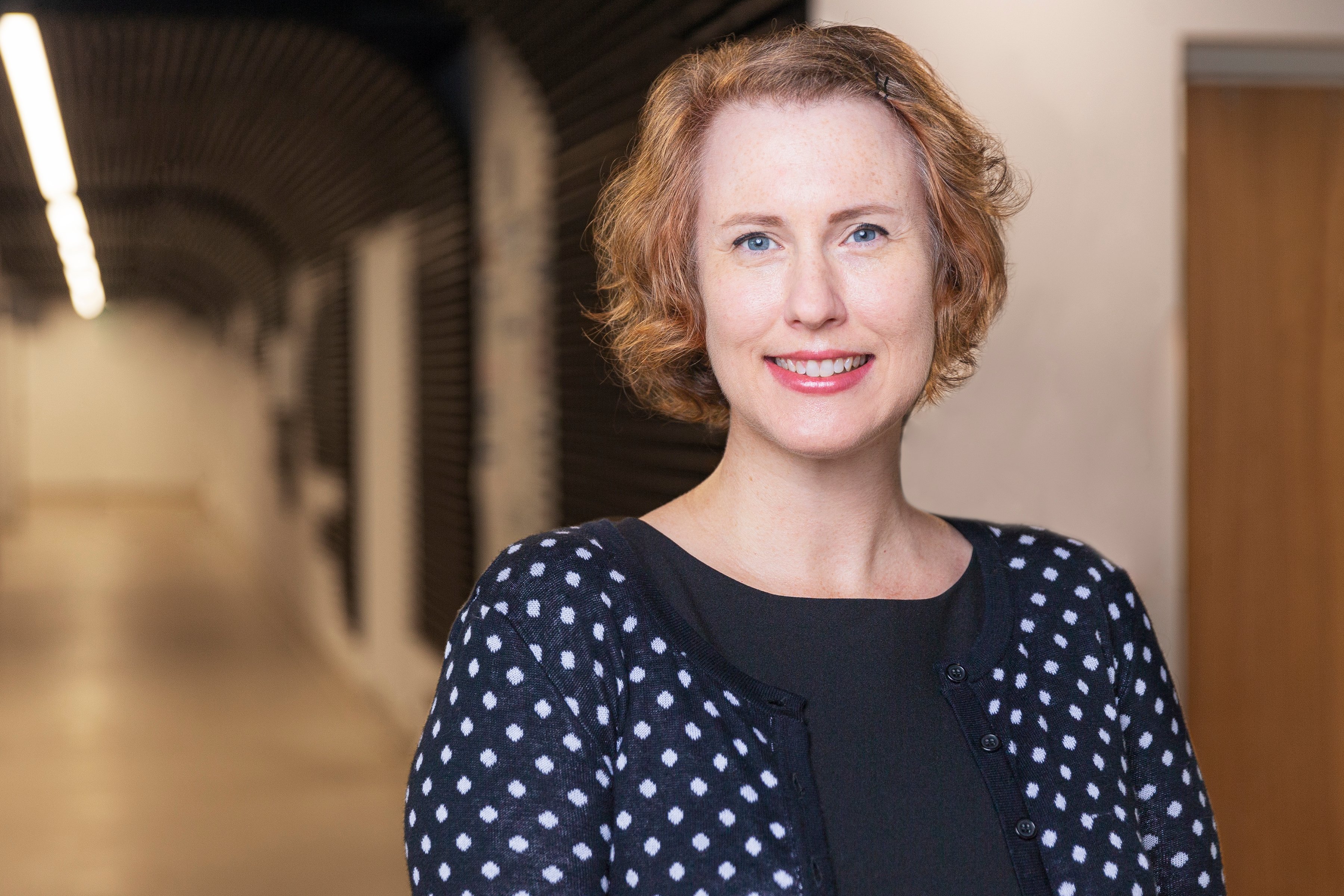Honest Conversations Around Cancer
Heidi Bragg vividly remembers her first conversation with Andrew Brohl, MD.
It was the summer of 2018. The mother of four had just been diagnosed with cardiac sarcoma, a rare cancer of the heart with a dire prognosis.
“This will be the thing you die from,” one doctor had already told her.
Heidi and her husband, Kevin, had travelled from their home in North Port, Florida, to Moffitt Cancer Center in Tampa. They were meeting with Brohl to discuss treatment options — or whether she should pursue palliative care.
Heidi had just turned 50. She and Kevin still had three teenage kids at home and another just graduating college. The kids were their focus, their world.
Brohl was honest.
“He said, ‘I would tell them: Mom’s probably going to be around for Thanksgiving, but we don’t know about Christmas.’” Heidi recalls the conversation with tears in her eyes.
Why would she bother with treatment, she asked.
Brohl explained that the cancer was very aggressive, but there was a sliver of hope.
Heidi remembers him forming his hands like a small slice of pie. “There’s this tiny window,” he told them, “and if you can hit it, the results can be amazing.”
A Familiar Topic
Heidi was no stranger to cancer. It ran in her family. Her father died from an undiagnosed metastatic cancer. Her sister passed away from a brain tumor at a young age. In 2013, Heidi herself had been diagnosed with colorectal cancer linked to a genetic condition called Lynch syndrome. She had her entire colon removed followed by a prophylactic hysterectomy to mitigate further genetic risk of ovarian cancer.
Recovery had been a hard road, full of major surgeries, but she knew her chances were good.
By 2018, Heidi and her family had settled back into a normal life. She was working full time, enjoying her kids, walking and riding her bike regularly.
She was tired a lot, but she chalked that up to being a busy working parent.
Then one day, at her oldest son’s college graduation, she experienced a kind of glitch. For a few seconds, she couldn’t make her mouth form the words she was thinking. And she had a migraine.
She talked to her doctor about it, concerned it might be a ministroke due to her family history. The doctor told her to go to the emergency room if it happened again. A few days later, she was picking up lunch from a restaurant, and she couldn’t move her right arm. She called Kevin and they went to the ER.
After a range of tests, a cardiologist presented the news. Heidi had a massive tumor in her left atrium. They suspected it was benign, but she needed open-heart surgery to remove it.
A couple days later, with her sternum wired back shut and a bovine patch on her heart where the tumor had been, Heidi got devastating news. The tumor was malignant, a cardiac sarcoma, and completely unrelated to Lynch syndrome. The first two doctors she spoke with described her prognosis as 100% fatal. The oncologist who originally treated her for the colorectal cancer recommended she go to Moffitt.
Discussing the Diagnosis
As a medical oncologist who specializes in sarcoma, Andrew Brohl knew the odds weren’t good.
“Historically, unfortunately, sarcomas that start in the heart have a really terrible prognosis,” Brohl explained. “It’s a difficult area of the body to do surgery on. It’s a difficult area to give radiation to, which is commonly done for sarcomas, because you don’t want to damage the nearby heart musculature. Chemotherapy can be tough on the heart as well. We often give that as part of our multimodality approach to treat aggressive sarcoma. Even when people are able to get all these treatments, the historical success rate of surviving this cancer is pretty low.”
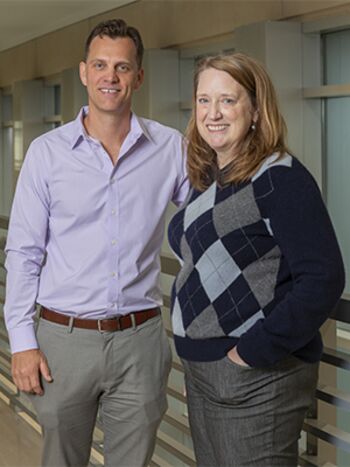
Andrew Brohl, MD, had some direct and difficult conversatons with Heidi in their first meeting. That set the stage for a strong bond that still endures today.
Most people die within a year of being diagnosed with cardiac sarcoma, Brohl says. The median survival rate is six months, according to one National Institutes of Health study.
In Heidi’s first visit to Moffitt, she met with Brohl and radiation oncologist Arash Naghavi, MD, to discuss her options. Much of that initial conversation centered around whether the harshness of treatment would be worth the outcome.
“That’s a difficult conversation to have with somebody,” Brohl said. “One, you need to be realistic with the patient about what they’re looking at, but two, leave the door open for the possibility of a better than average outcome — because averages are just that.”
Heidi had already been through the surgery to remove the tumor. If she decided to pursue further treatment, she would need six weeks of radiation followed by nine weeks of chemotherapy. The chances for survival were slim, but they were there. Faith pushed her forward.
“If there was any possibility that my life could continue, that that was what God’s plan for me included, then I wanted to do everything I could,” she said. “If you tell me there’s no chance, then I’m going to make the most of the time I have left. But when you tell me there’s a shot, I’m going to fight as hard as I can. I wanted to know that I had done everything I could because I didn’t want to leave Kev. I didn’t want to leave our kids without a mom.”
The Toughest Talk
Heidi and her husband were already agonizing over the conversation that needed to come next. They were planning to tell the kids, Matteo, 14; Téa, 16; Eric, 19; and Chris, 22. But they weren’t sure what exactly to say. They asked Brohl.
“Be honest with them,” he said, sharing that stark timeline punctuated by Thanksgiving and Christmas.
The care team at Moffitt also connected Heidi and Kevin with Olivia Luginski, a licensed clinical social worker for the Sarcoma Department. Luginski works with patients to ensure they have the support they need to deal with a diagnosis and treatment. That includes resources for families.
Luginski met with Heidi to share online resources and information about Moffitt’s Families First program, which helps parents and kids who are coping with a diagnosis in the family. She often helps families navigate conversations like these.
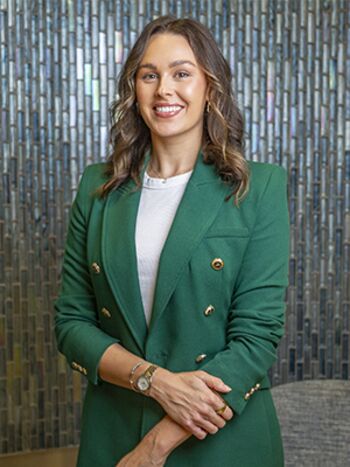
Social worker Olivia Luginski works with patients like Heidi to ensure they have the support they need to deal with a diagnosis and treatment.
“Children are highly perceptive and often pick up on subtle emotional changes in their parents, even when those emotions are not explicitly expressed,” Luginski said. “It can be tempting to delay or postpone the conversation, but I encourage patients to share their diagnosis as soon as they feel ready. Keeping it a secret can often lead to more emotional stress.”
Kevin took the reins and immediately arranged for a therapist to meet with the family.
“That conversation was the worst part of all of this — because they’d already been through it once,” Heidi said, recalling the conversations they’d had with the kids five years prior, after her first cancer diagnosis.
This time was different, though, because the prognosis was so poor. Still, Heidi and Kevin took the same straightforward approach that Brohl had confirmed would be best. They explained what was happening and answered questions as best they could. The conversation was tough on all of them, but Heidi knew that including their kids was crucial to their well-being as a family.
“I think what we make up in our heads is usually a lot worse than the reality, even if the reality is dire,” she said. “Having real information makes such a difference. I feel strongly that letting them know what’s going on makes a huge difference in their processing.”
As Heidi moved forward with radiation and then chemo, she, Kevin and the kids continued with therapy on their own terms. Sometimes they went individually, sometimes in different pairings. After the initial full group session, they left it up to the kids to decide how much they wanted to talk.
“Cancer is a family experience. It affects everybody differently,” Heidi said. “They’re different people, and I think it was important to have respect for what they needed, providing resources but not forcing anybody to do anything.”
Finding Comfort in ‘My People’
Over the course of her treatment, Heidi and Luginski kept talking. Luginski shared resources on local lodging, financial assistance, therapeutic massage, yoga and a network of cancer survivors called Imerman Angels, which connects patients to mentors who have been through similar diagnoses.
“There’s a lot of comfort and power in knowing those things exist, whether you take advantage of them or not,” Heidi said. “It’s like knowing you’re not alone and feeling surrounded and enfolded by all these different people who are there to help if and when you want and need them.”
Heidi came to Moffitt five days a week for six weeks of radiation therapy. During that time, she got to know a lot of her care team on a personal basis. During her treatments, the radiation therapists would play her favorite ’90s dance music. They’d talk about their lives and their families. They became “my people,” as Heidi now calls them.
The chemotherapy that followed was rough, as expected, but Heidi kept pushing forward. Her family had strong support through their church community and friends. Faith and hope kept them going.
By Christmas 2018, Heidi had completed her treatment. By summer 2019, she had beaten the odds for cardiac sarcoma.
Heidi continued to come to Moffitt monthly for full-body scans to monitor for signs of residual tumor regrowth and metastases. During one of her surveillance appointments in December 2019, Brohl noticed a suspicious spot near her urinary tract. It turned out to be a third type of cancer, urothelial cancer, unrelated to the cardiac sarcoma but instead tied to Lynch syndrome.
Brohl connected Heidi with Philippe Spiess, MD, a surgeon in Moffitt’s Genitourinary Oncology Department. Spiess performed surgery to remove the tumor. He told her the cancer was slow growing but that it would come back. She would need to stay on surveillance, but the prognosis was good.
Continuing the Conversations
Five years later, Heidi continues to visit Moffitt. She and her husband now live in Eugene, Oregon, but she makes the cross-country trip twice a year for a series of about 15 appointments with experts across the cancer center. They are monitoring her for sarcoma and other cancers related to Lynch syndrome.
The conversations are still hard sometimes, and with each scan comes some anxiety. But she has built a bond with her care team that Brohl credits with her always coming prepared to have the tough conversations.
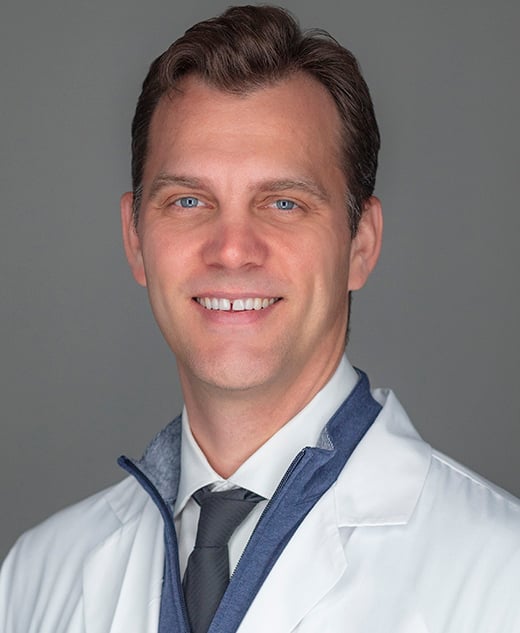
“Even in our first visit, she wasn’t afraid to ask me some of these difficult questions, and I wasn’t afraid to answer them,” Brohl said. “I’ve always felt that the patients who are doing that, it makes it an even more fruitful working relationship. Even from the very first meeting, we came away with a pretty strong bond from going through that together.”
Heidi agrees, and she now aims to be that same source of straightforward information that Brohl, Luginski and others on her care team were to her. She serves as a mentor for other cancer patients in the Imerman Angels program. She also hosts a podcast called Life, Cancer, Etc., where she leads frank conversations with cancer experts, fellow patients and caregivers. Soon, she plans to write a book and do more public speaking about her experiences. Her goal is to spark conversations that make the journey a little easier for others.
“I think you can find the beauty in any of these experiences, but it’s incredibly difficult and takes a lot of mental strength and discipline and divine help,” she said. “And that’s what I pray for. What can I learn from this? How can I use this to help other people? How can I do something that makes somebody else’s day a little bit easier? As hard as it is, cancer can be a transformative experience if you’ll allow it to be.”
This article originally appeared in Moffitt's Momentum magazine.


